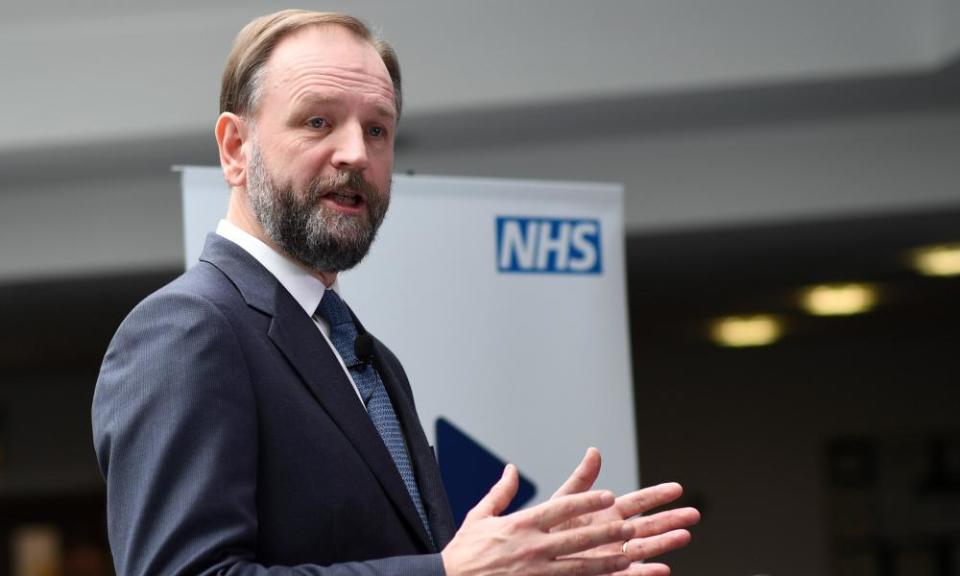Hammond backtracked on funding after 'fury' at NHS boss's demands

Philip Hammond backtracked on plans to give the NHS more money than it eventually got in the budget after reacting with “fury” to its boss Simon Stevens’s public demand for an extra £4bn next year.
The chancellor viewed Stevens’s plea, in which he urged ministers to deliver on leave campaigners’ promise of £350m a week more for the NHS, as “very, very unhelpful” when he was facing so many pleas from other services for cash.
At the time of Stevens’s speech on 8 November, Hammond had already begun discussions with the health secretary, Jeremy Hunt, over his formal pre-budget request that the NHS in England be given a £3bn uplift for 2018-19.
But sources close to the talks say that both Hammond and Treasury officials felt that the NHS England chief executive’s move meant that the chancellor could not be seen to be acceding to what they saw as “overt public blackmail”.
In his speech Stevens warned that the number of people waiting for non-urgent surgery could soar to 5 million, and that improvements in cancer and mental health care might have to be abandoned, if NHS “underfunding” continued.
NHS leaders and medical groups praised Stevens’s speech as a reminder that the health service could not continue to receive tiny budget increases, given the fast-rising demand for care. But Hammond, who informed sources claim was “left in an impossible position” by Stevens, responded by deciding to give the NHS just £1.6bn more next year.
“At the point when everyone else was clamouring for more money, if he gave in then to the NHS’s claim for £4bn, what was he going to say to everyone else? If Stevens hadn’t intervened the NHS would have got more. Giving in to the NHS would have made it really hard to resist everyone else who wanted more money,” said one source with knowledge of events.
Another official said: “Stevens blew the gaff a bit; he blew it up. If he hadn’t done that the chancellor and the Treasury would have taken the NHS more seriously and given it more money. They don’t take well to public shroud-waving.”
Hunt and senior officials at the Department of Health, who hoped to get close to the £3bn they were seeking, also reacted with frustration. Unusually, Hunt had been making the NHS’s case with the Treasury rather than Stevens, who insiders say was angry to have been kept out of key meetings.
Senior figures at the Treasury were so angry that they even considered giving the NHS only enough extra money to deliver the Conservatives’ manifesto pledge of increasing health spending per head every year until 2022 – just £310m.
In the end Hammond used the budget to hand the NHS £2.8bn more than planned from now until 2019-20, including the £1.6bn next year.
But NHS England, frustrated that the settlement gives it too little, plans to use its board meeting next Thursday to spell out how badly it will affect patients, for example through greater rationing and longer waiting times, in what some NHS insiders say could prove to be the start of a bruising public battle between the service and the government over funding.
Nigel Edwards, chief executive of the Nuffield Trust health thinktank, said: “It is unprecedented as far as I can remember for lines of debate to be set out so publicly between the NHS high command and the government. It probably reflects NHS England being genuinely worried that they do not have enough money to do what they’ve been told to do.”
NHS trust bosses’ disappointment at the service’s extra cash was summed up by Sarah-Jane Marsh, the chief executive of Birmingham Women and Children’s Hospital trust. She tweeted: “My reaction to the NHS budget settlement – one of extreme sadness. Some very difficult conversations ahead.”
NHS England declined to comment.

 Yahoo News
Yahoo News 